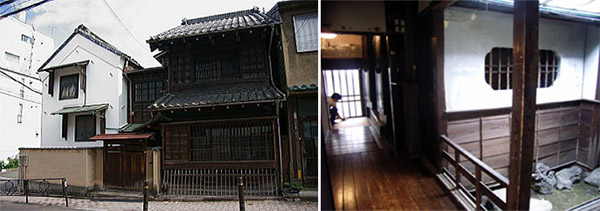Tokyo apartment sales in December 2014
January 6, 2015Real Estate News,Market Information,All,Tokyo

The following is a selection of apartments that were sold in central Tokyo during the month of December 2014:Read more
What’s in store for Tokyo’s residential real estate market in 2015?
January 5, 2015Tokyo property marketReal Estate News,Market Information,All,Tokyo
Let’s take a look at what some analysts are predicting for the Tokyo residential property market in 2015.
Unfavourable conditions for new apartment market?
In 2013, the supply of new apartments reached 56,000 units in greater Tokyo. However, several factors caused the supply to drop by as much as 24% in 2014. An increase in the consumption tax rate to 8% in April 2014 led to a boost in demand from buyers looking to lock-in the lower tax rate (this tax applies to the building portion of new apartment sales). In addition, reconstruction efforts in Tohoku, redevelopment projects for the 2020 Summer Olympics and a weakening Yen have led to a steep rise in construction costs and a shortage in labour. This has reduced the profit margins for developers and has caused some projects to be delayed or cancelled.Read more
High-rise plans for northern side of Toranomon Hills
December 30, 2014Toranomon,Toranomon HillsOffice/Retail News & Information,Real Estate News,Redevelopment & Reconstruction,All,Tokyo

On December 12, the Tokyo Metropolitan Government’s Bureau of Urban Development announced details for the Toranomon Station South District Plan. There are plans for this project to be certified under the National Strategic Special Zone, which could provide an allowance to increase the floor space for the site.
District A
District A (Toranomon 1-17~20), which is a 1.5 hectare site directly across the street on the northern side of Toranomon Hills, currently contains several smaller buildings including the Toranomon 10 Mori Building (1966) and the Nishimatsu Building (1962). Current plans are for a 36-storey, 185m tall office building with a total floor area of 175,000 sqm. Development approval is expected to be announced in June 2015. If approved, construction will start in February 2017 with completion expected by December 2019.Read more
150+ year old warehouse and shop in Bunkyo-ku at risk of demolition
December 29, 2014Bunkyo,Historic properties in JapanDemolition,Historic Properties,All,Tokyo

The owner of a historic shop in Bunkyo-ku, Tokyo announced plans to demolish the building and sell the land after having difficulty in maintaining the 150 year old property. Local residents have formed a group to oppose demolition and held a public symposium on December 17th to call for urgent action to protect the property.
The former Iseya Pawnshop, located alongside the Hongo-Kikuzaka slope, operated from 1860 to 1982. The property consists of three buildings including a 2-storey warehouse, shop and a 1-storey tatami room. The traditional warehouse dates from the Bakumatsu era, or the closing days of the Tokugawa shogunate (1850s ~ 1860s) and was relocated from Shikihama in Adachi-ku to its current location in 1887. The tatami room was built in 1890 and the shophouse was built in 1907.
Ichiyo Higuchi, a prominent author of the Meiji period who is featured on the 5,000 Yen banknote, mentioned the store in her writing as she lived in the neighbourhood for several years.Read more
Shoto Governor’s Residence sells for 4.3 billion Yen
December 26, 2014Shoto,Shoto Real Estate,Shibuya Real EstateLand,Real Estate News,All,Tokyo

The former Tokyo Governor’s Residence in Shibuya’s high-end Shoto neighbourhood has been sold to Sumitomo Realty & Development for 4.368 billion Yen (36 million USD), or approximately 1,968,000 Yen/sqm based on the land size.
The residence was offered for sale by the Tokyo Metropolitan Government via public bidding from December 15 ~ 19. Sumitomo and another major real estate company were the only two bidders. The second bidder had tendered approximately 4 billion Yen for the property.Read more
2020 Olympics Athletes Village Plans Revealed
December 24, 2014Harumi,Tokyo 2020 Summer OlympicsNew Construction,Real Estate News,All,Tokyo,Tokyo 2020 Olympics

The Tokyo Metropolitan Government announced the model plan for the 2020 Summer Olympics Athletes’ Village in Harumi, Chuo-ku, Tokyo.
There are plans for 22 residential buildings ranging from 14 ~ 17 stories. After the games, the apartments will be sold off as either rental apartment or condominiums. Two 50-storey high-rise apartment towers will also be built after the games, along with a school and retail facilities. A total of 6,000 apartments will be supplied.Read more
First apartment building to be redeveloped in Saitama
December 23, 2014Saitama PrefectureReal Estate News,Redevelopment & Reconstruction,All

Residents of a 34-year old condominium apartment building in Saitama City have decided to rebuild after an earthquake-resistant diagnosis showed the building was at risk of collapse in a major earthquake.
This will be the very first case of a resident-led condominium redevelopment in Saitama Prefecture. To date, Saitama only has two cases of apartment redevelopments - both were carried out for urban development and road widening, rather than building age.
The 7-storey building in Omiya-ku was built in 1980. The average age of a resident is over 60, yet the building was lacking in barrier-free facilities. Equipment was ageing and the elevator needed replacing. In 2009, a building inspection found that the structure was not earthquake-proof and posed a danger of collapse in a major earthquake.
